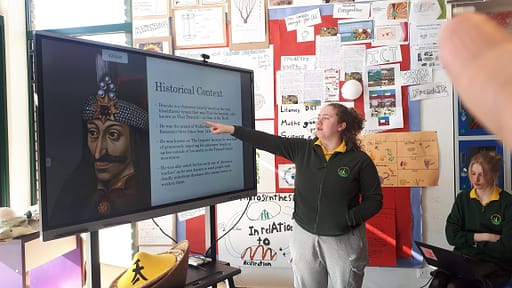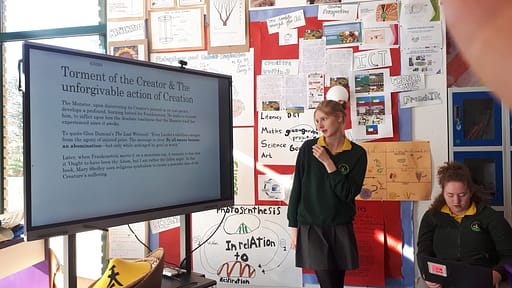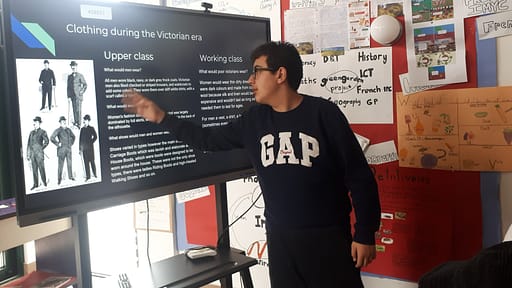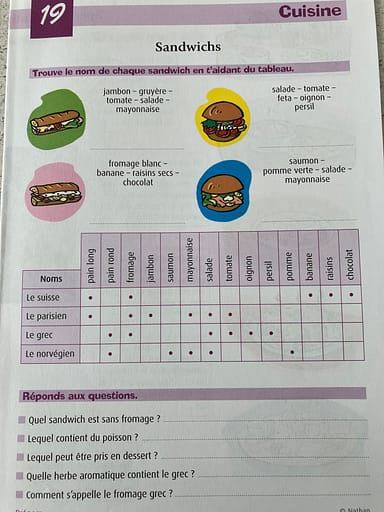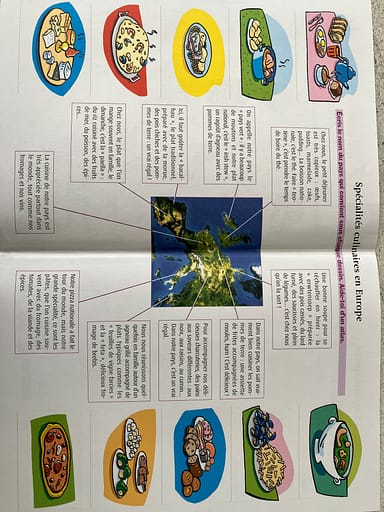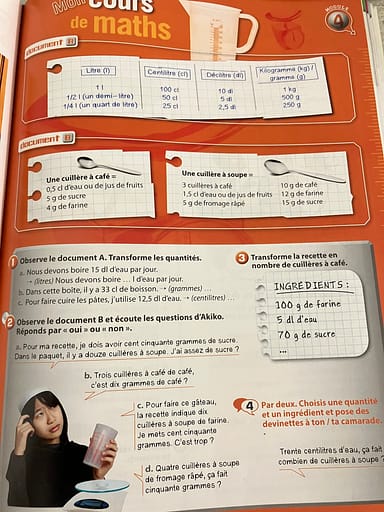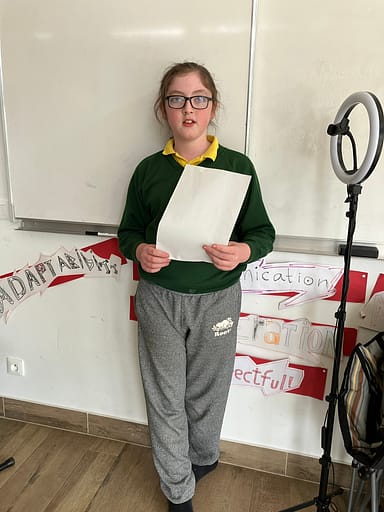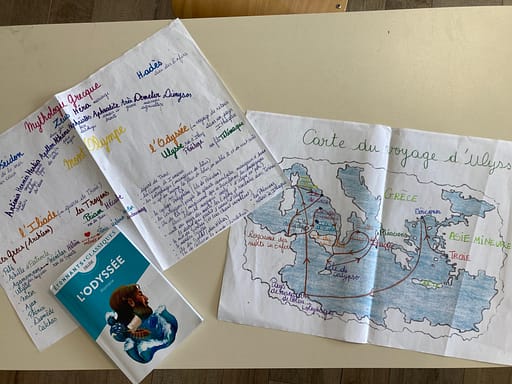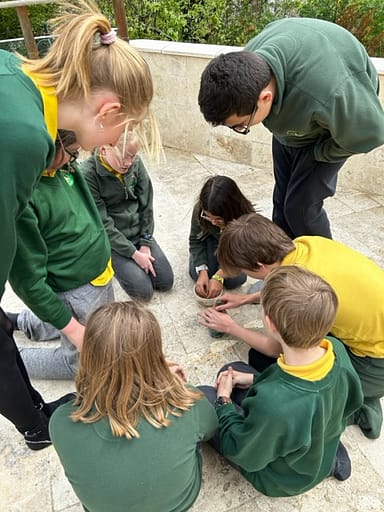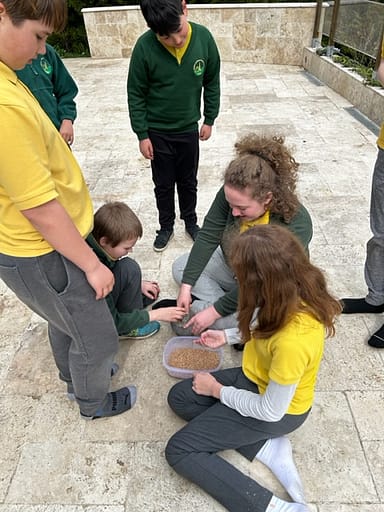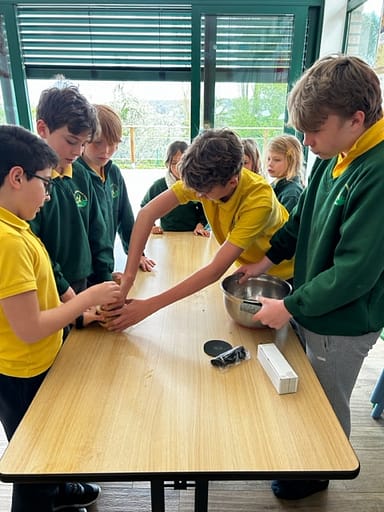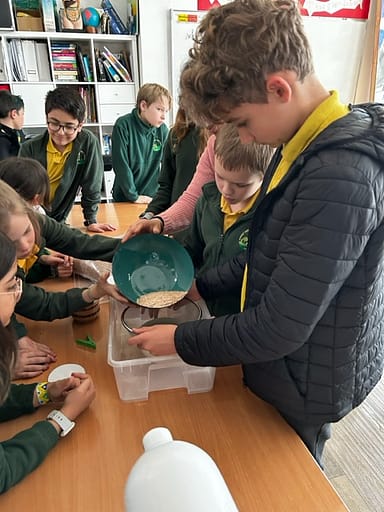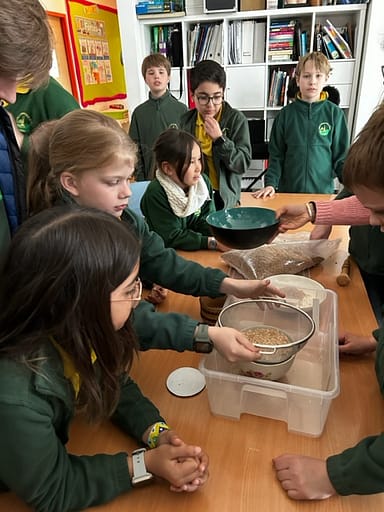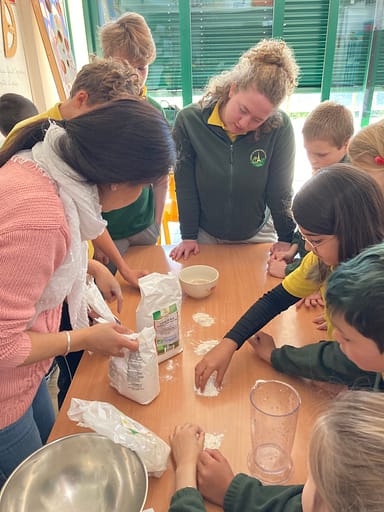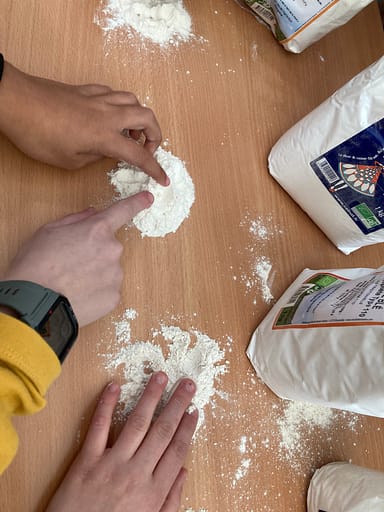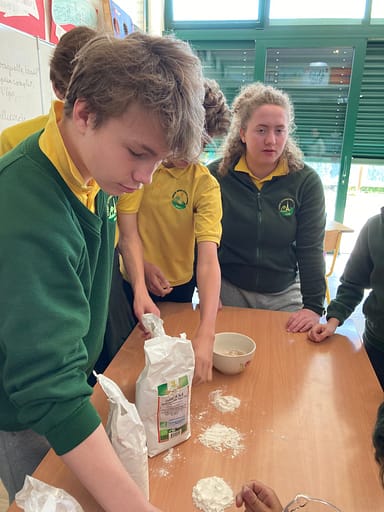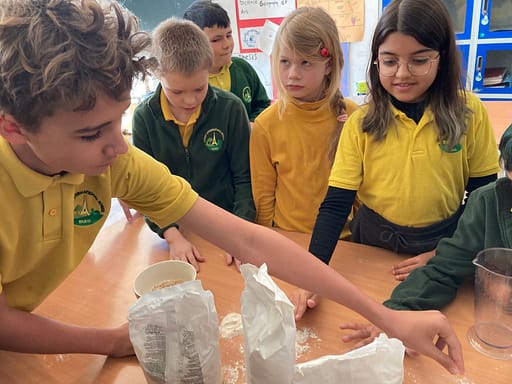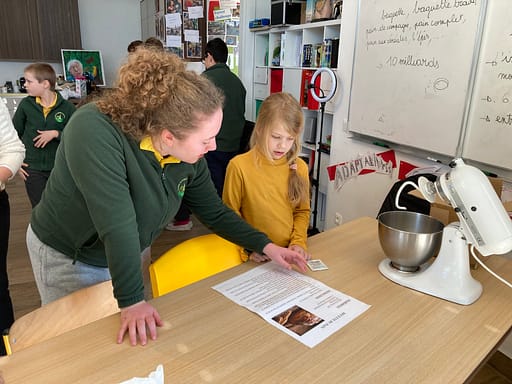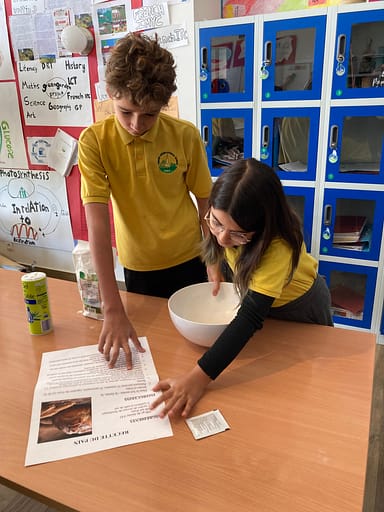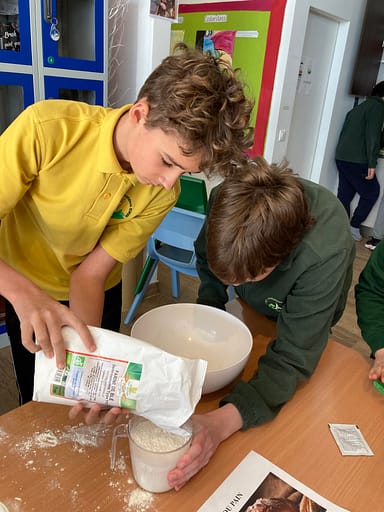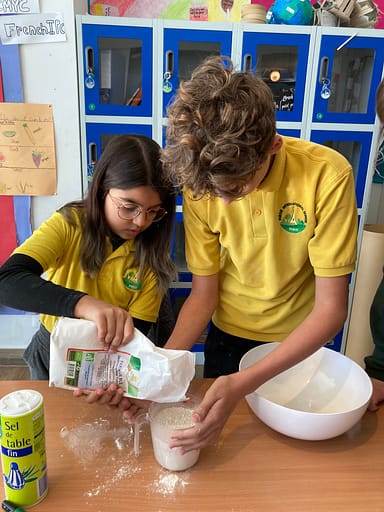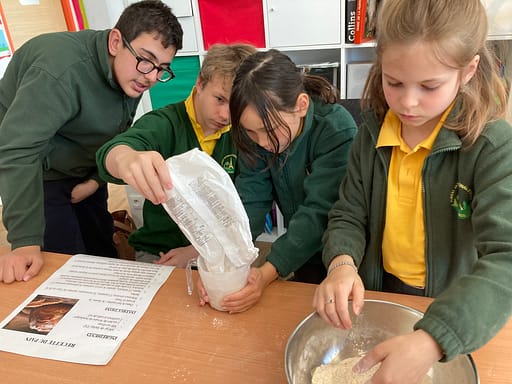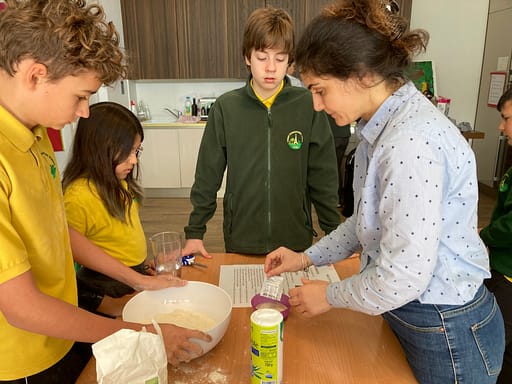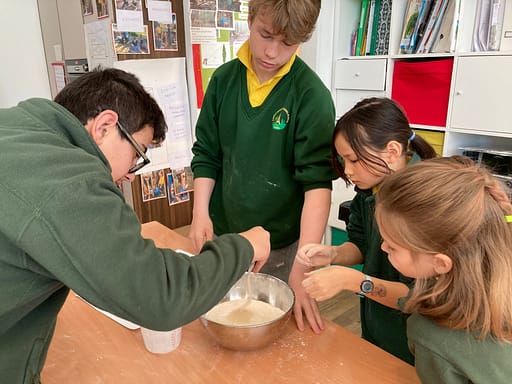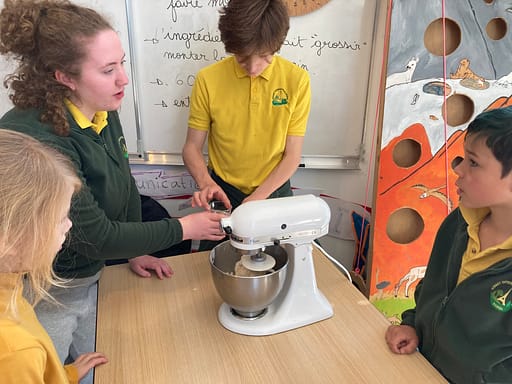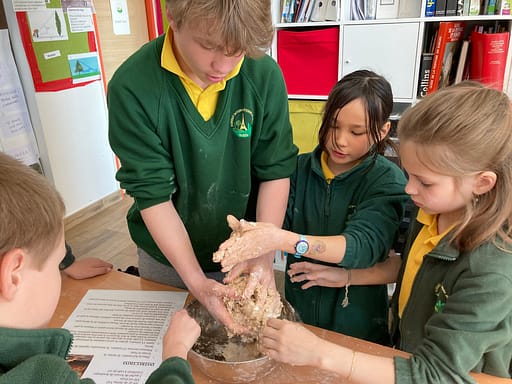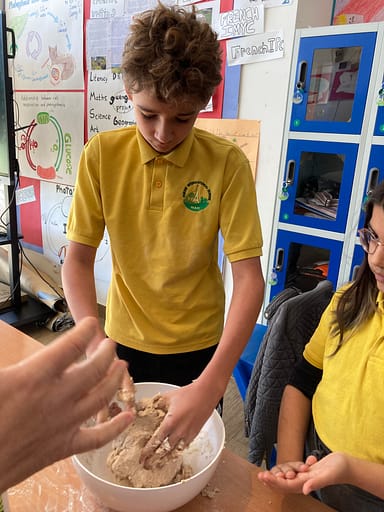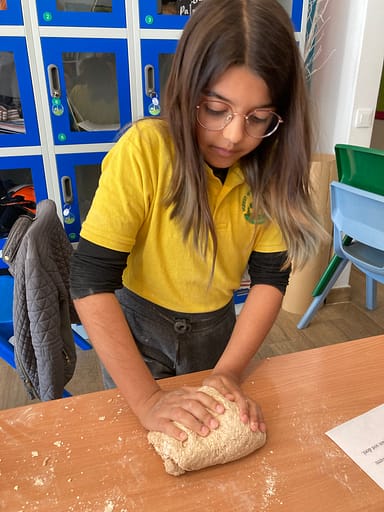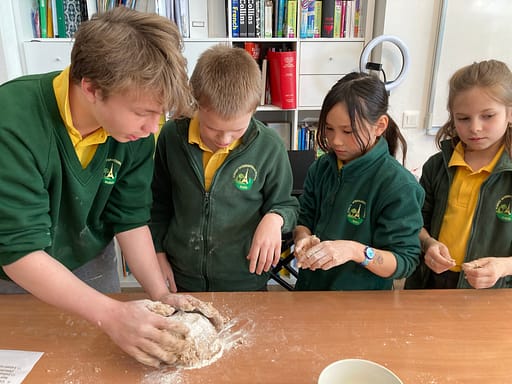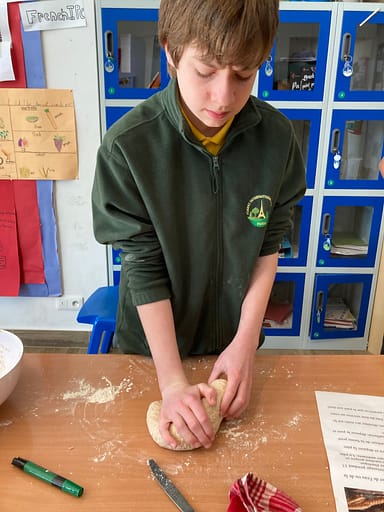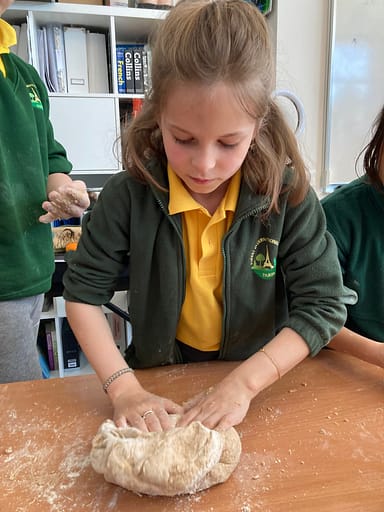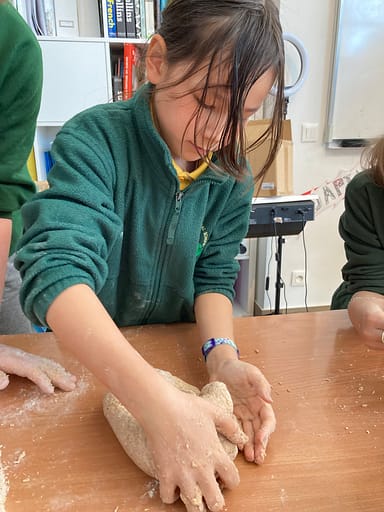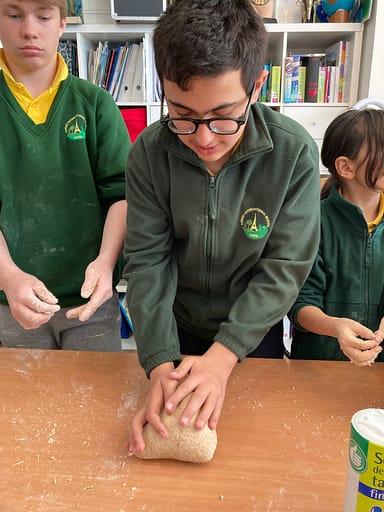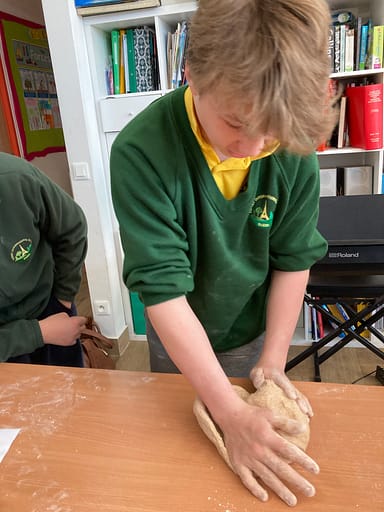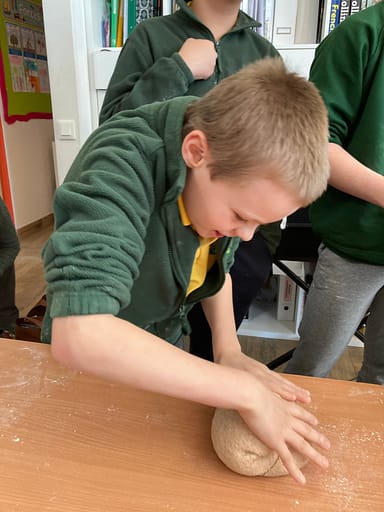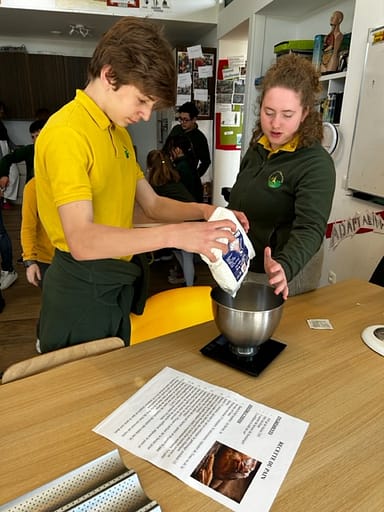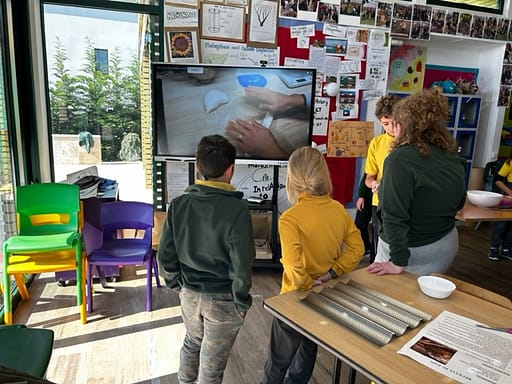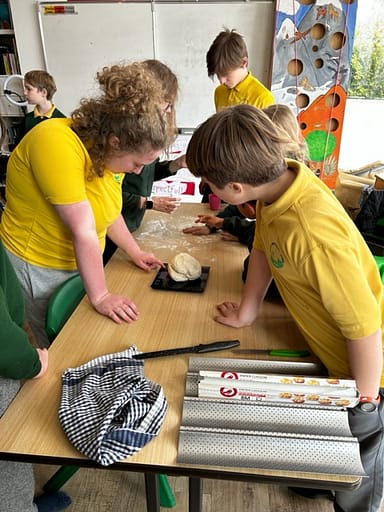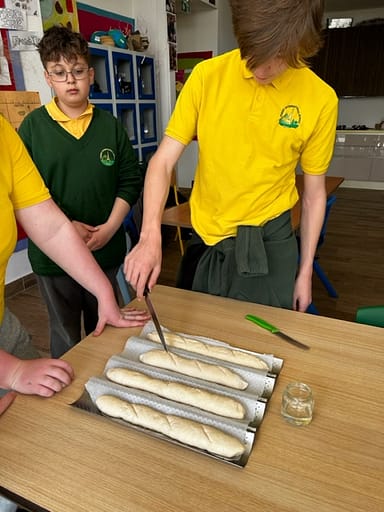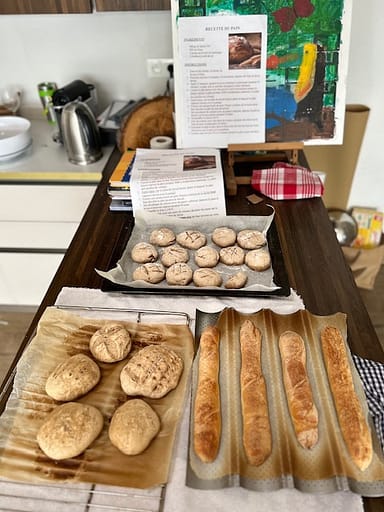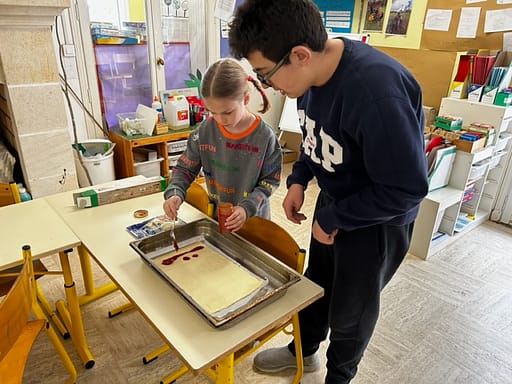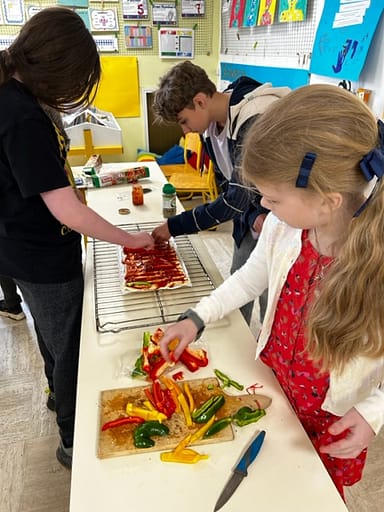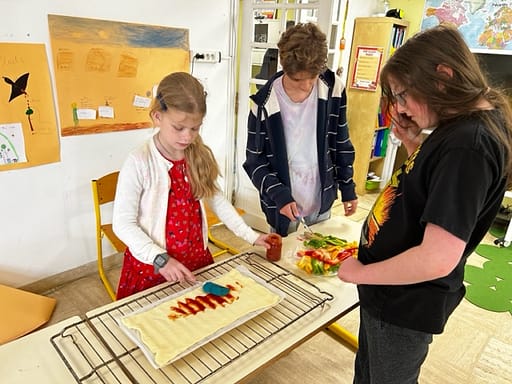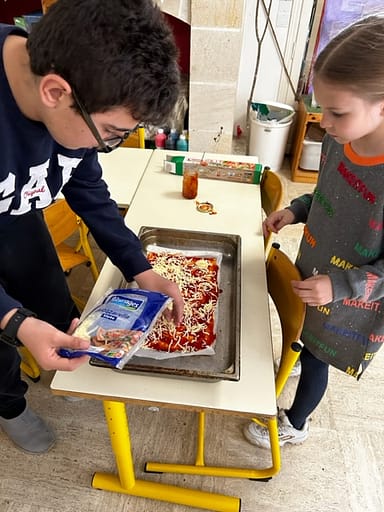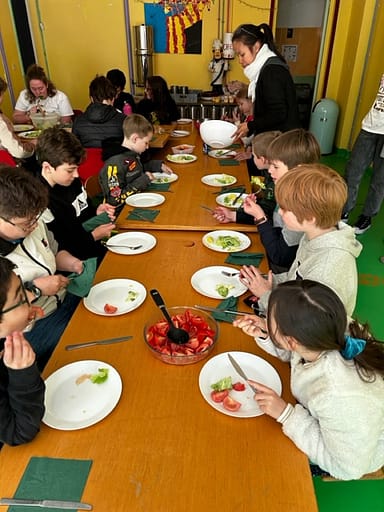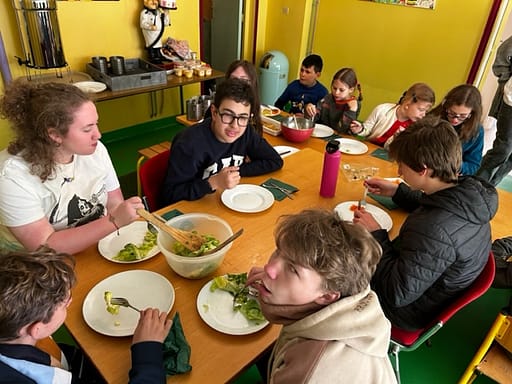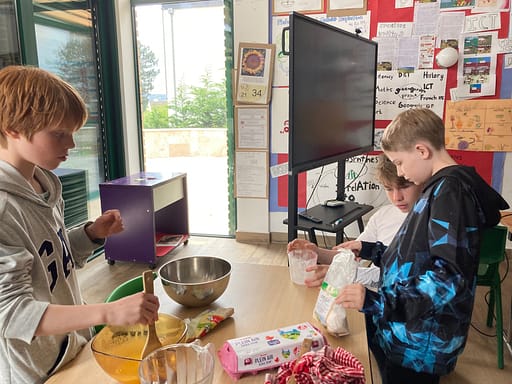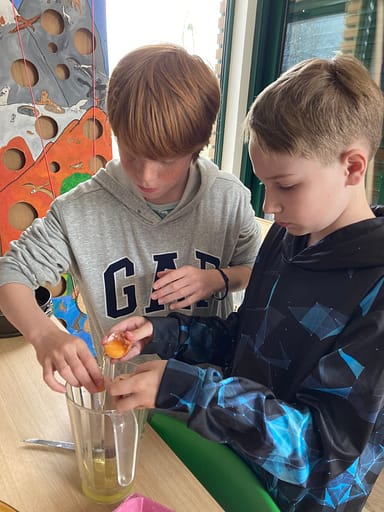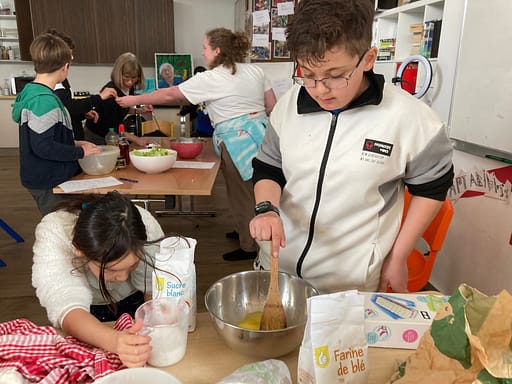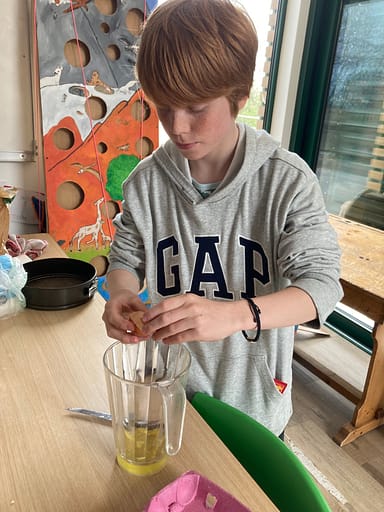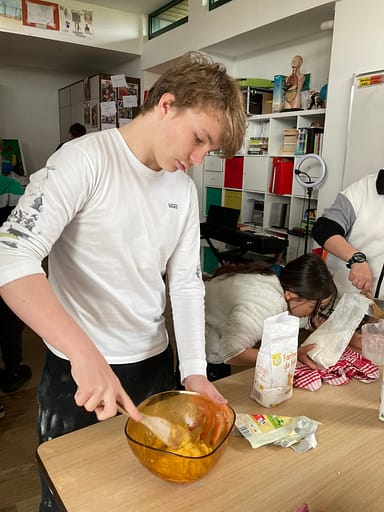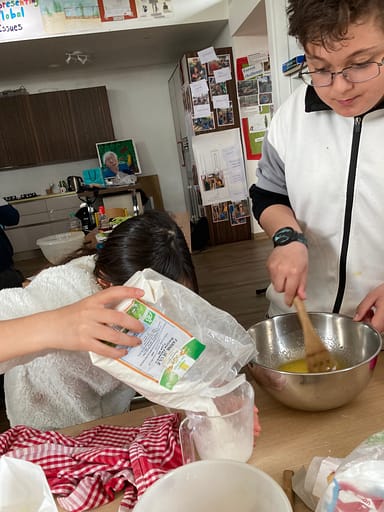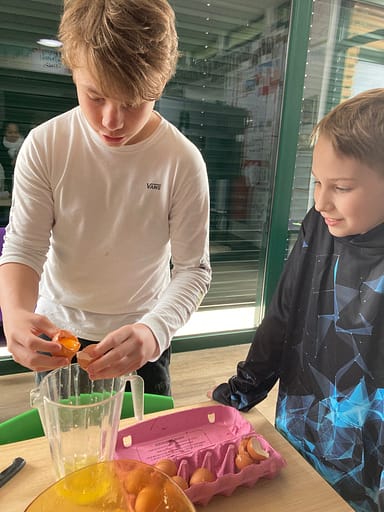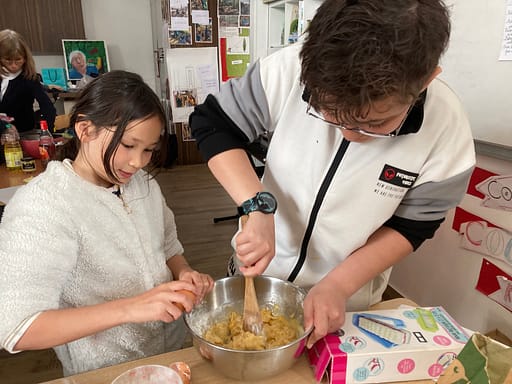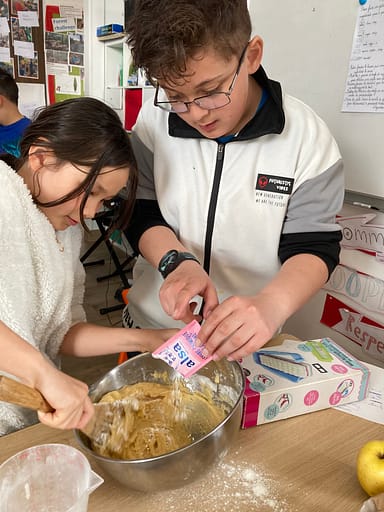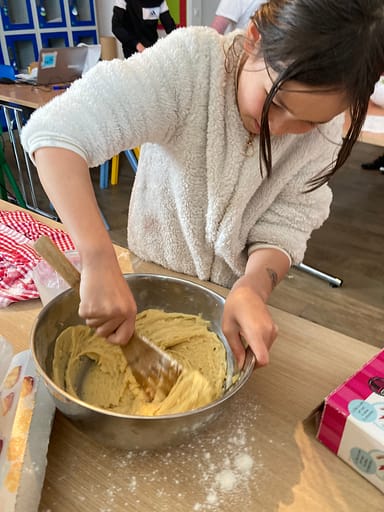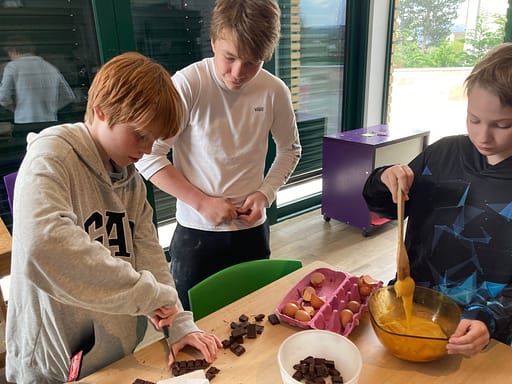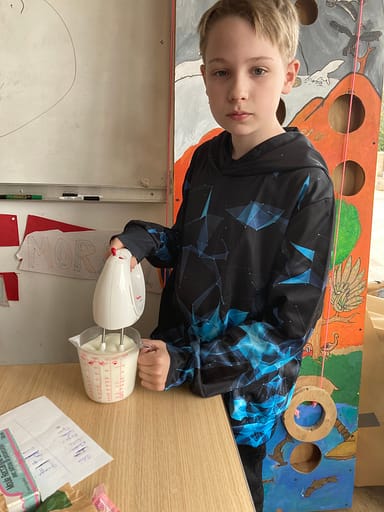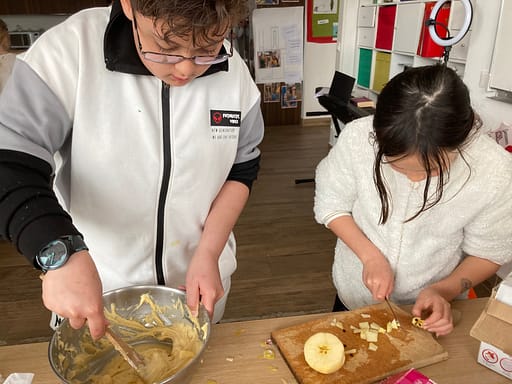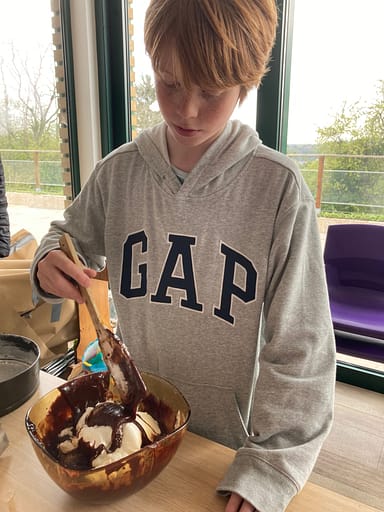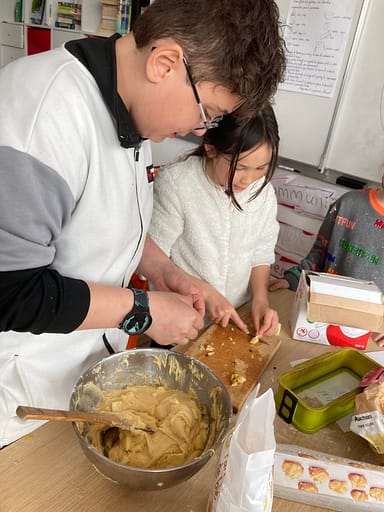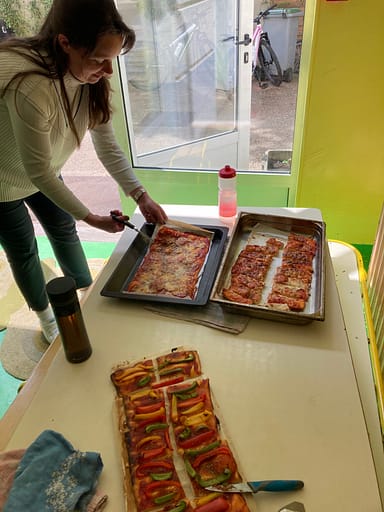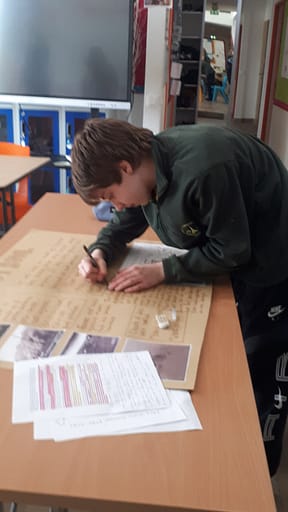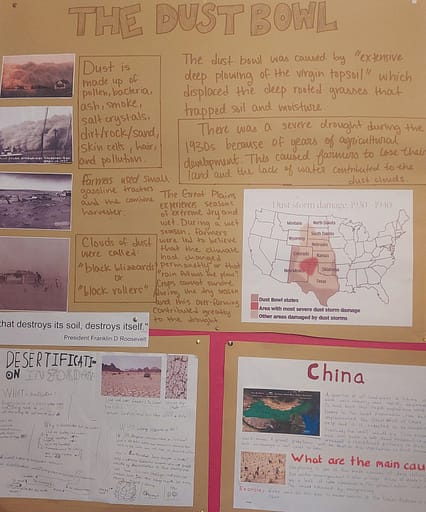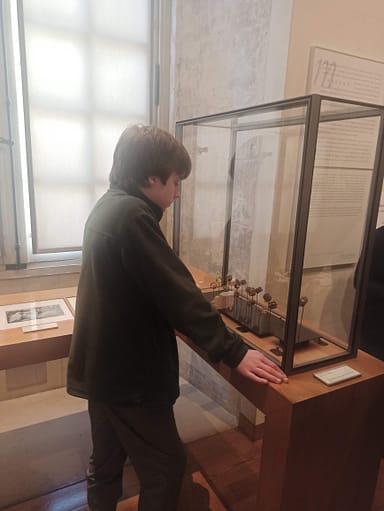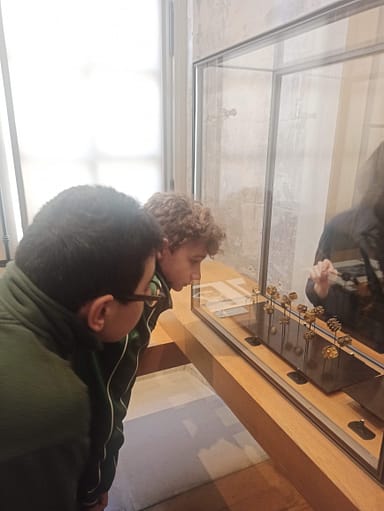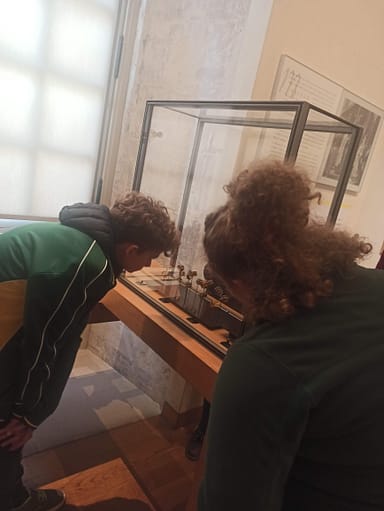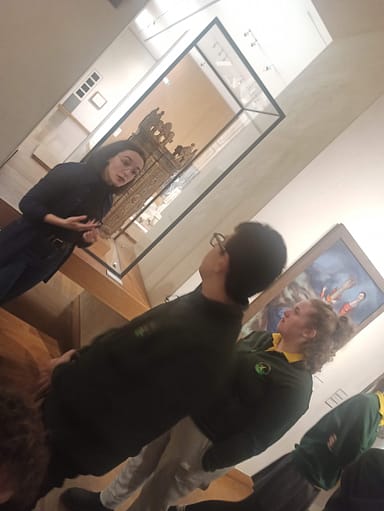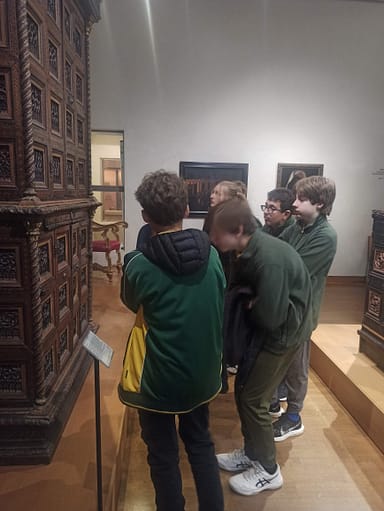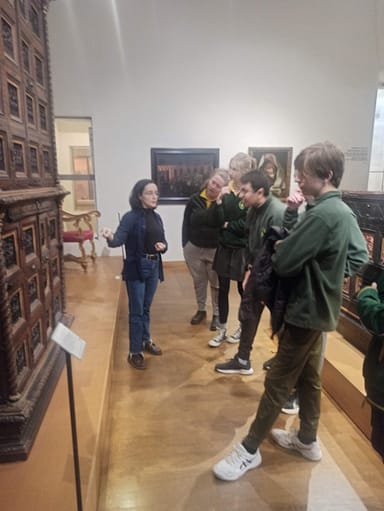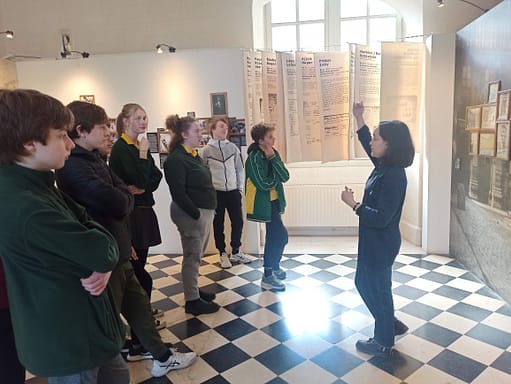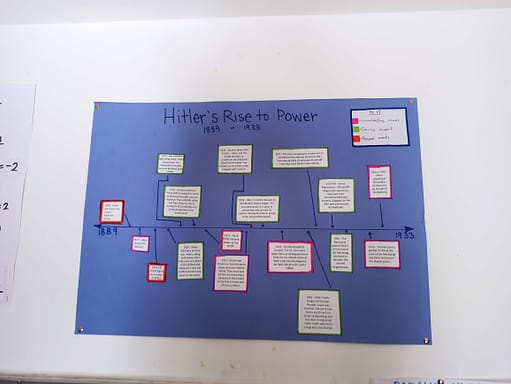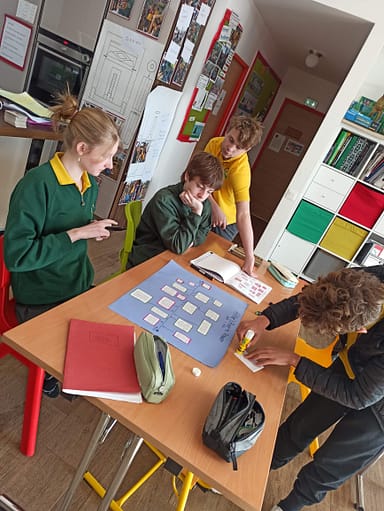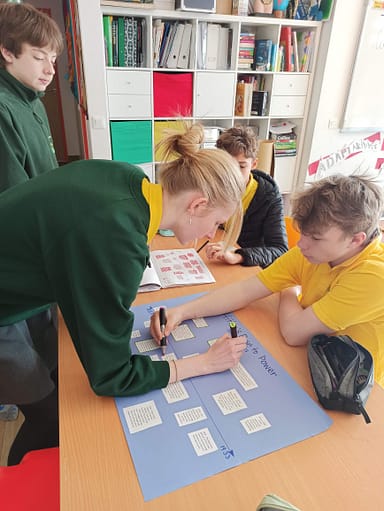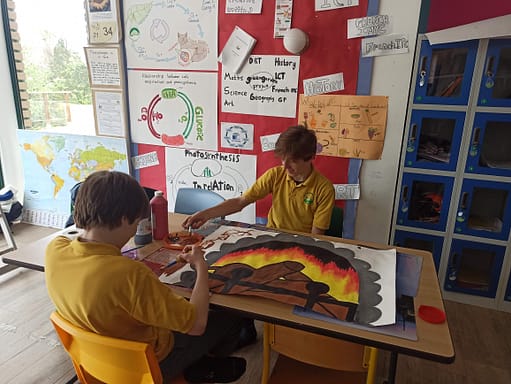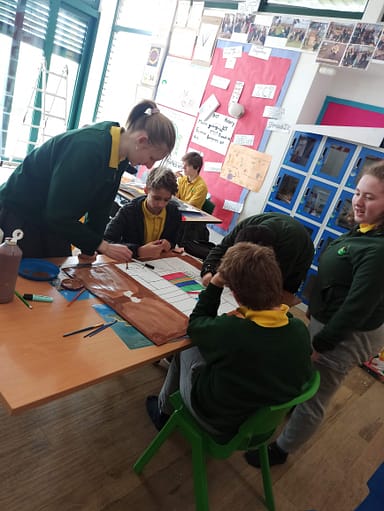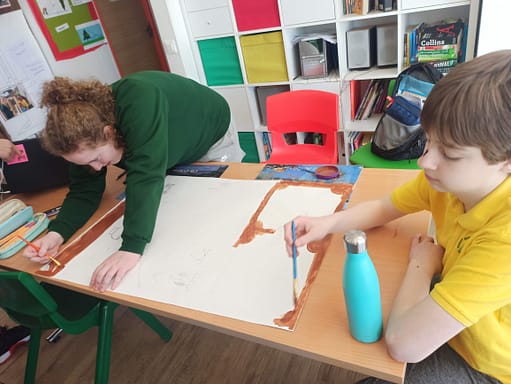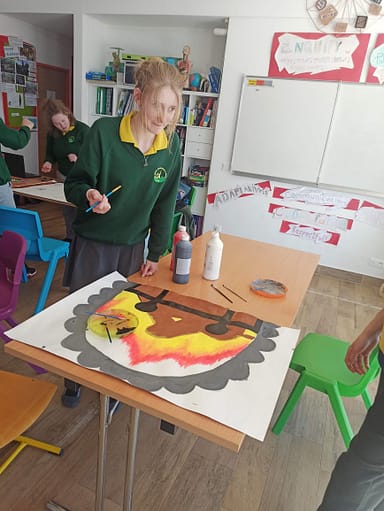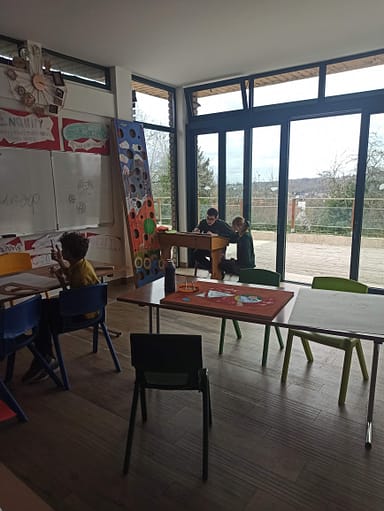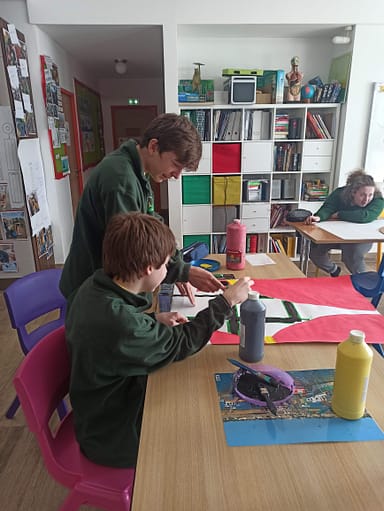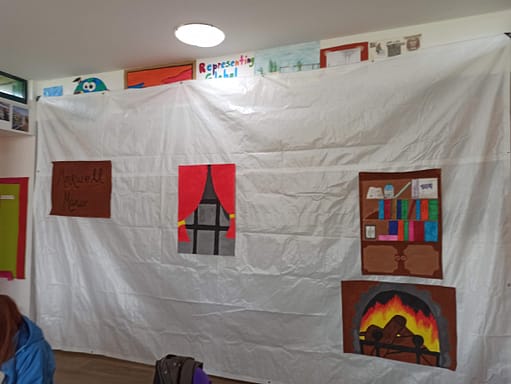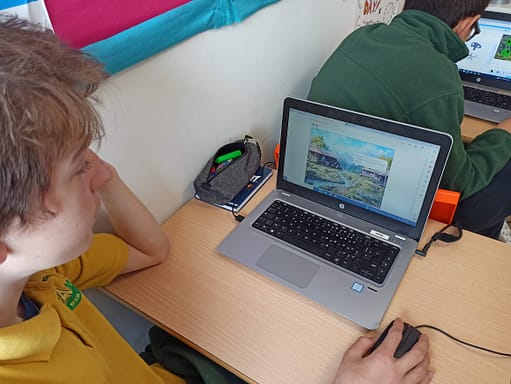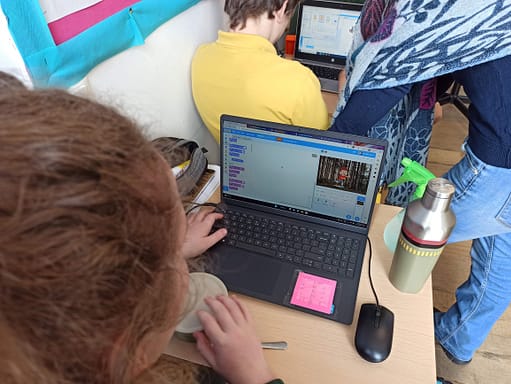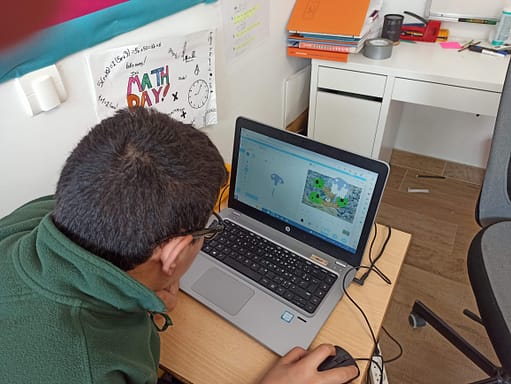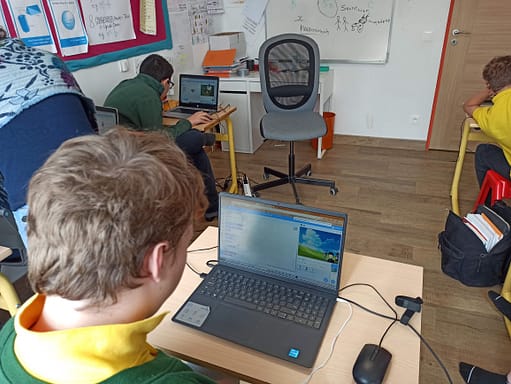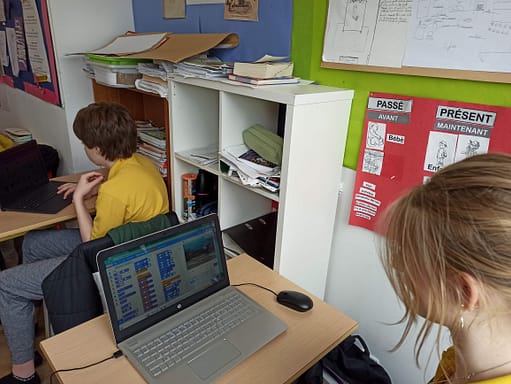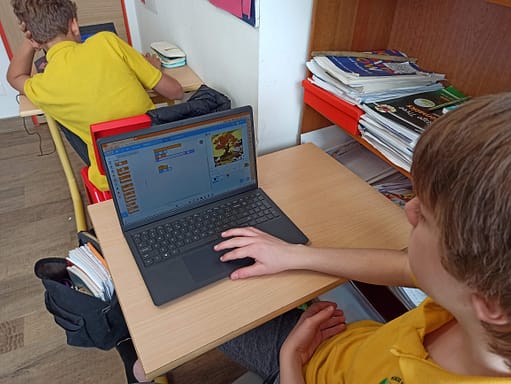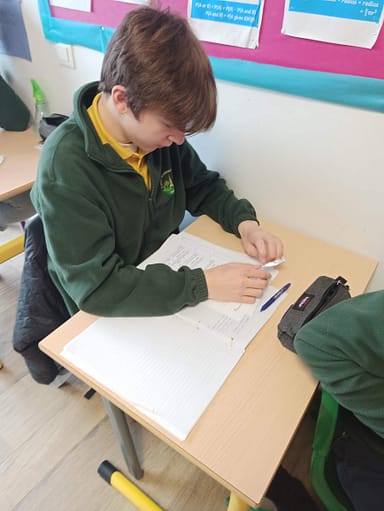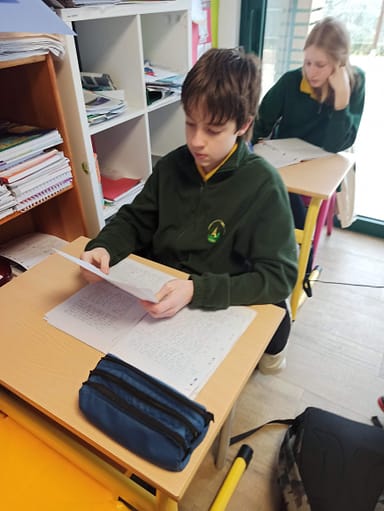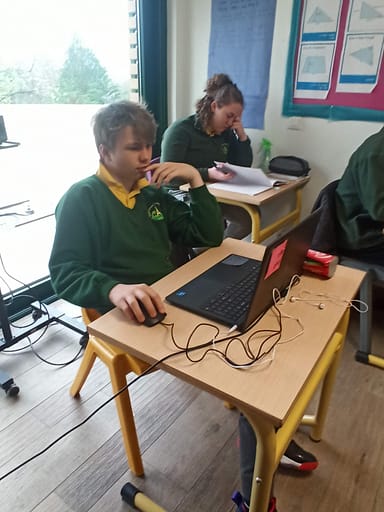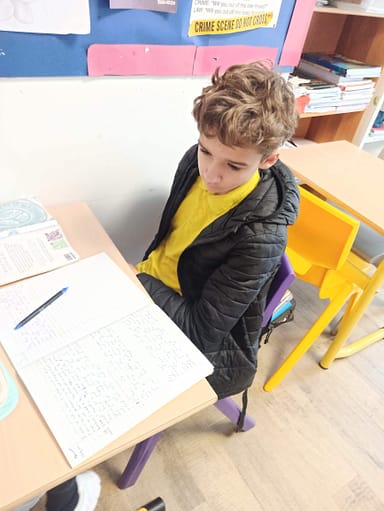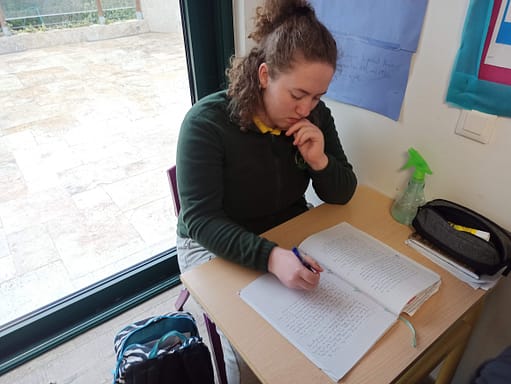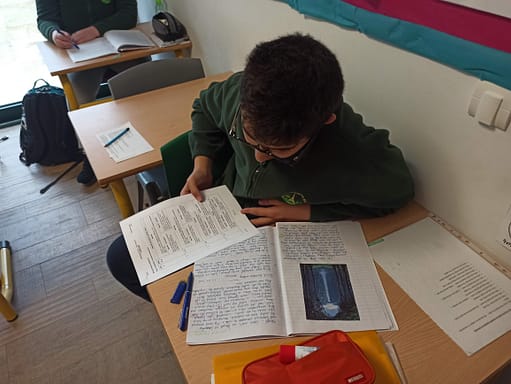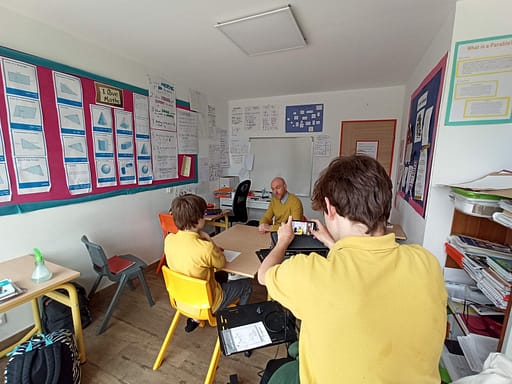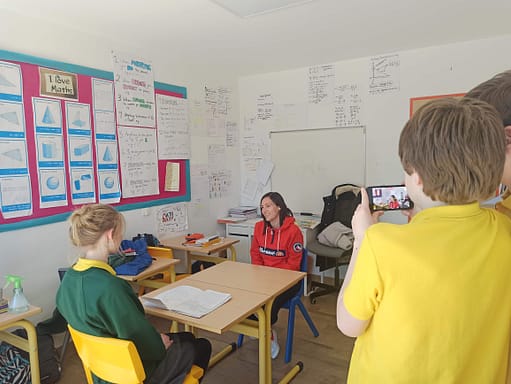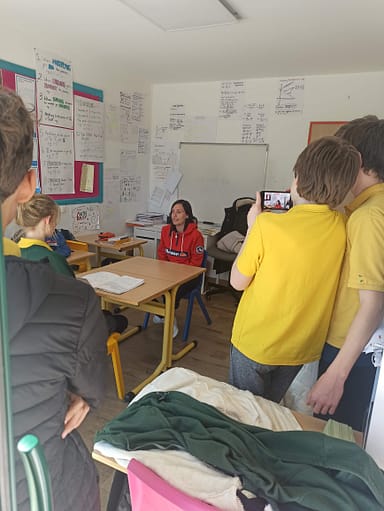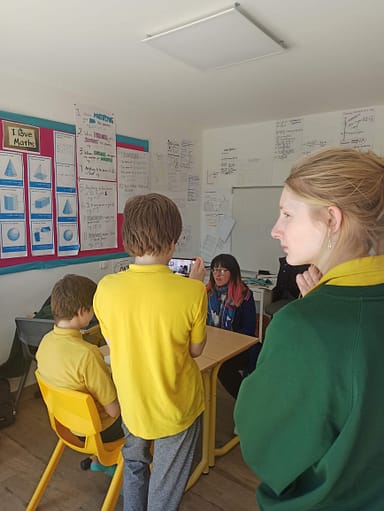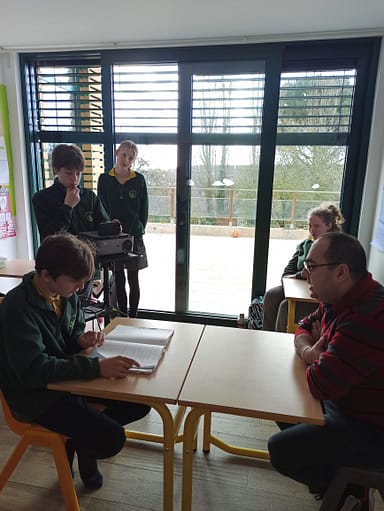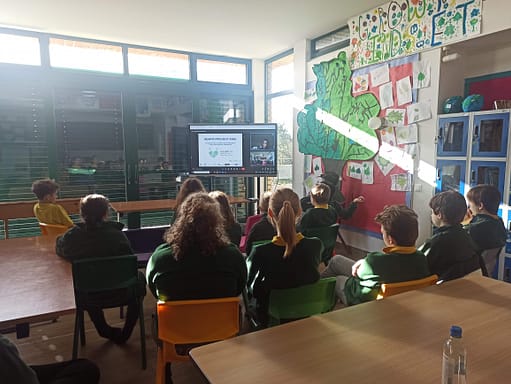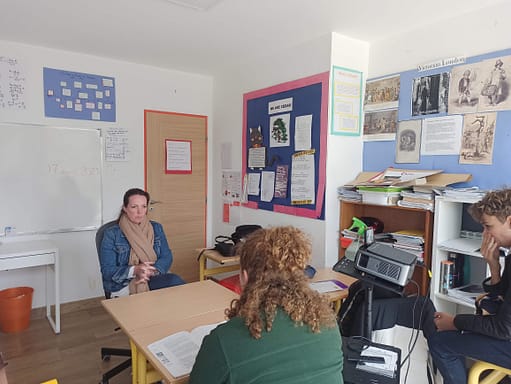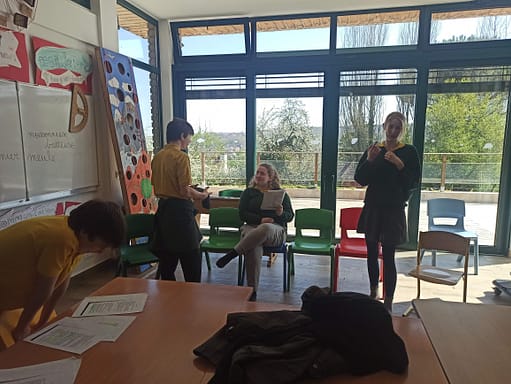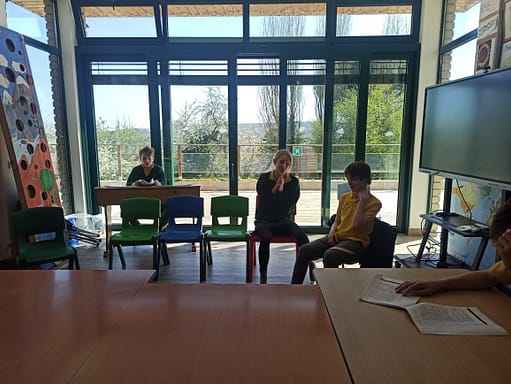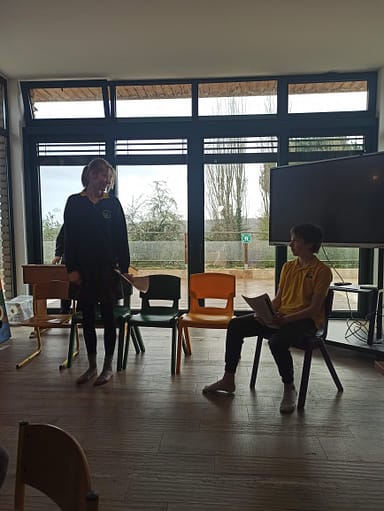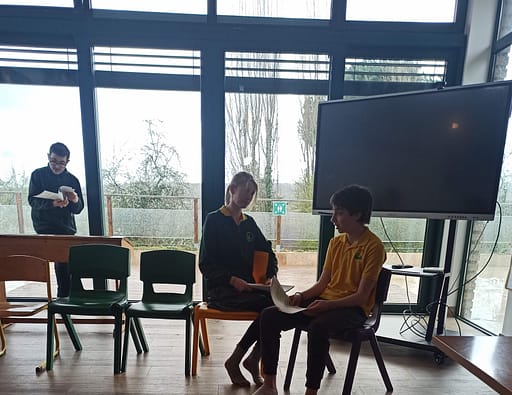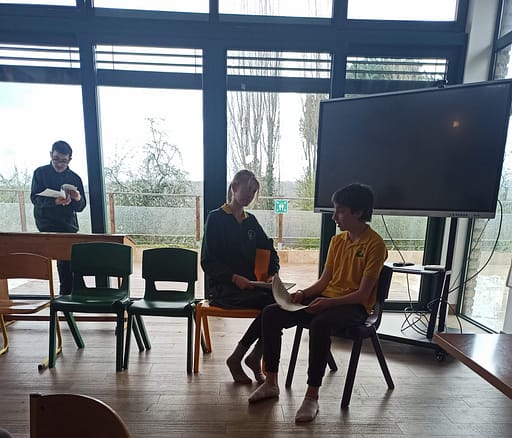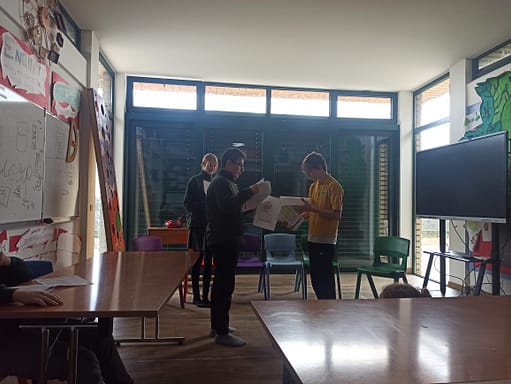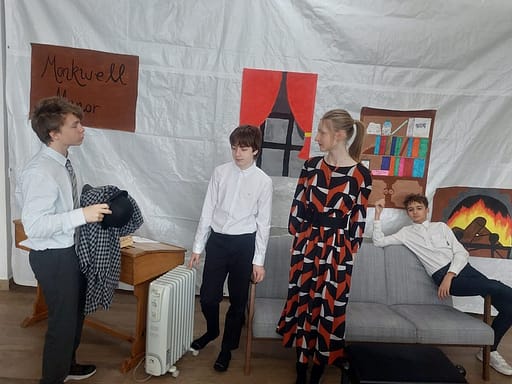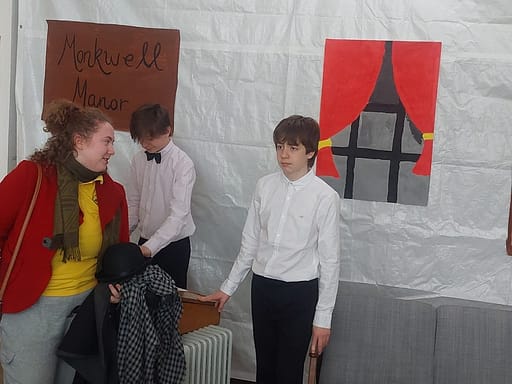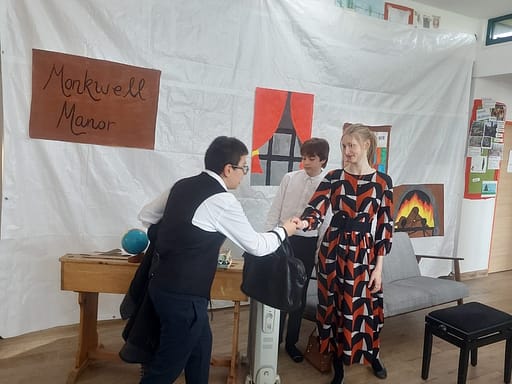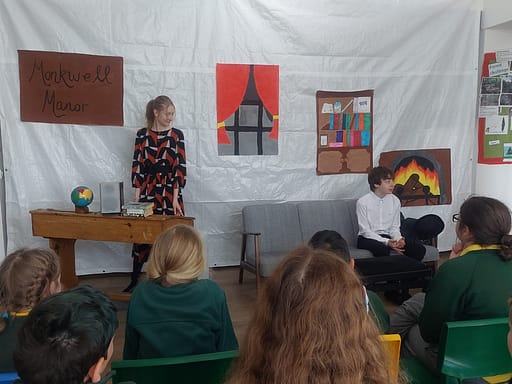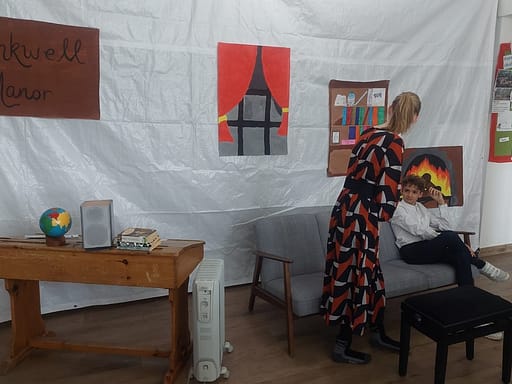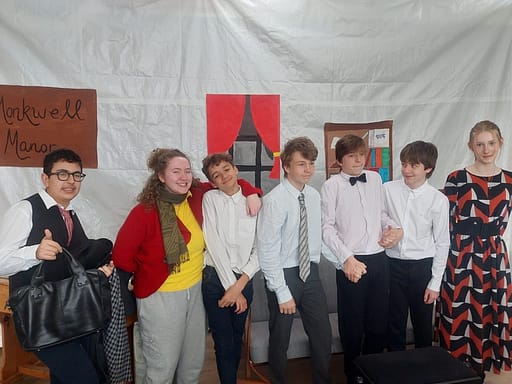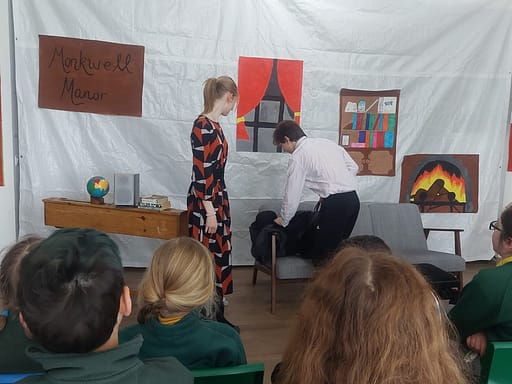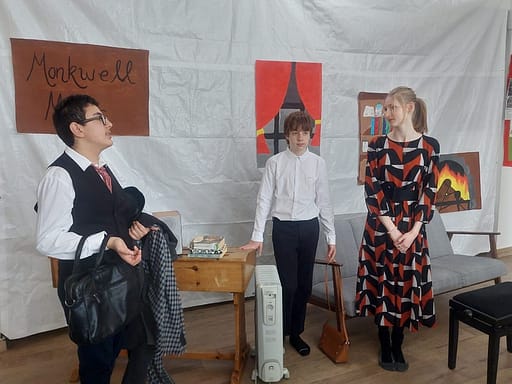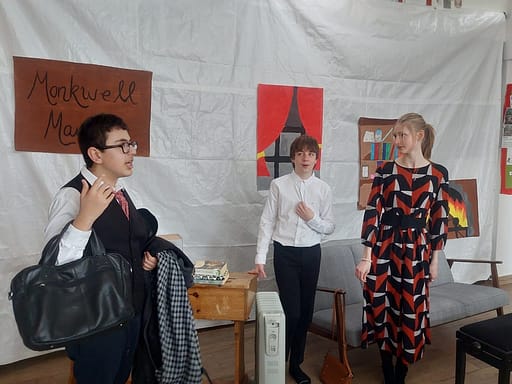English
Cedar finished reading The Strange Case of Dr Jekyll and Mr Hyde by Robert Louis Stevenson. The class held a debate on the character of Dr Jekyll, one side arguing that he is a sympathetic character and the other taking the opposing view. In pairs, they produced artwork depicting the book and presented projects based around the developments in art and science during the Victorian era, from psychology and criminology to the highly stylised manners and dress of the period, the literature and the appeal of the Gothic.
French (Intermediate Group with Christine)
During these last two months, Food and Television (stars and games) were our main topics. They gave them the opportunity to develop even more their oral expression which represented an important part of each lesson. Through these topics, they had to express their tastes, present a recipe of one typical meal of their country, present their favorite star, and present the job they would like to do later. Aside from this, we continued our Monday activity where each child has to speak about its weekend, answer and ask questions. All this developed oral interactions in French between them. Learning a poem and saying it in front of the others also had a part in this process of learning vocabulary and gaining confidence in speaking French in front of the others. Although the oral expression had an important part in this school period, children also had to work on grammar, verbs, the past tense, quantities, through written exercises to train them in building grammatically correct French sentences. In the last following months, we will work on the topics of Health and Jobs.
French (Advanced Group with Marie)
Cette quatrième période a été principalement consacrée à la mythologie grecque. En effet, les élèves ont continué d’intégrer les notions de français en articulant leurs apprentissages autour de cette thématique :
en grammaire: les natures et les fonctions des mots, les compléments de phrases (lieu, temps, manière)
en conjugaison: le futur simple et le plus que parfait (avec révision du passé composé)
en orthographe: le champ lexical, les familles de mots, les homophones grammaticaux, les mots invariables
en mémorisation: 2 poésies ont été apprises et récitées
en littérature: la mythologie grecque avec lecture du livre l’Odyssée d’Homère puis différentes fiches de lecture.
2 dictées et 2 évaluations ont eu lieu pendant cette 4ème période.
French IMYC
We have had a very busy spring term full of different themes to explore. There were two very important topics that we discussed : Journée Internationale de la Femme on the 8/03 and Journée Internationale de la Francophonie on the 20/03. We had some very interesting discussions and debates around gender stereotypes; the pay gap between men & women in countries around the world and the students created posters around these issues. We found out some interesting facts about the French language and how many millions of people around the world speak it daily.
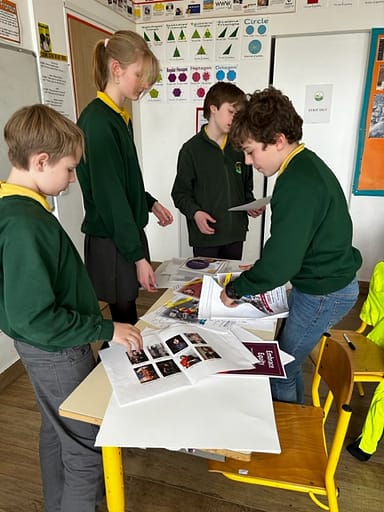
preparing posters 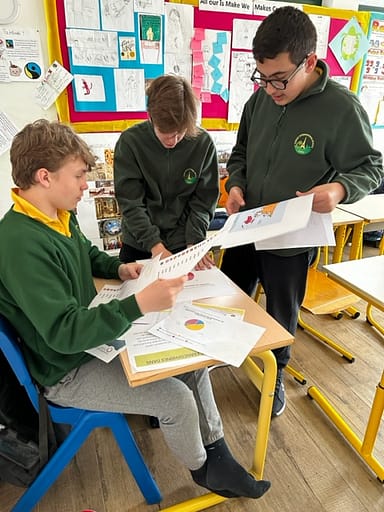
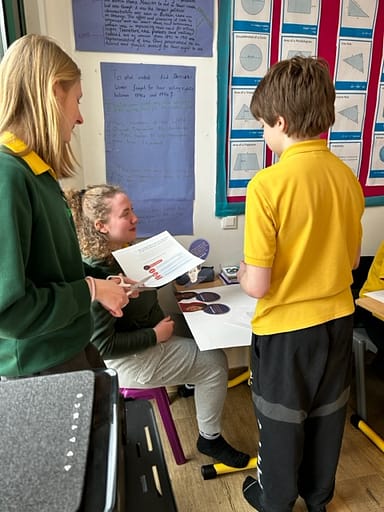
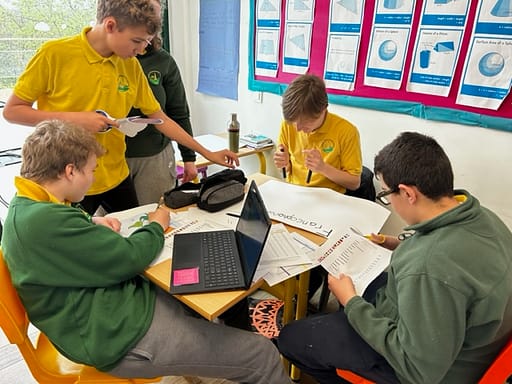
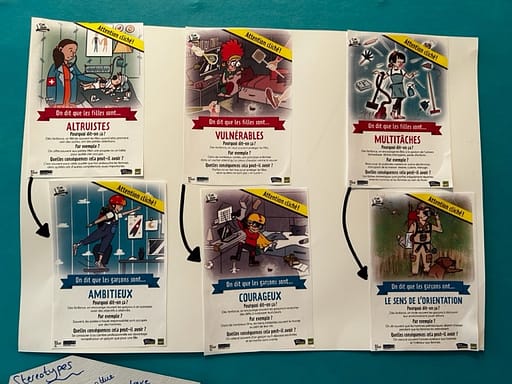
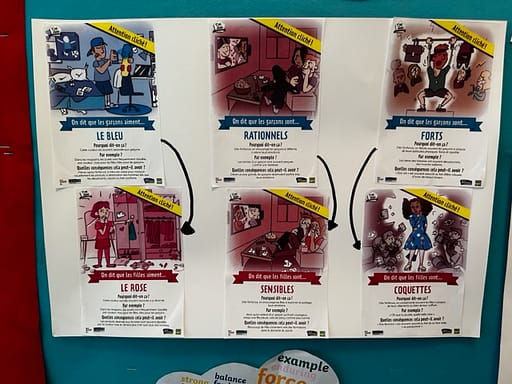

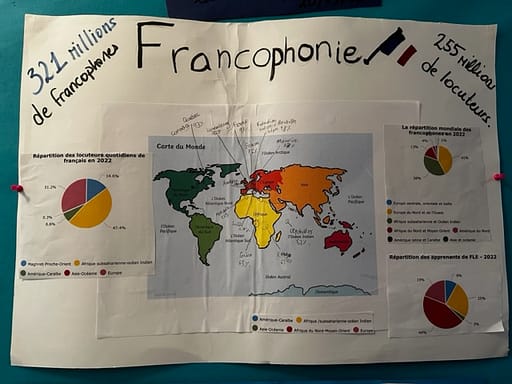
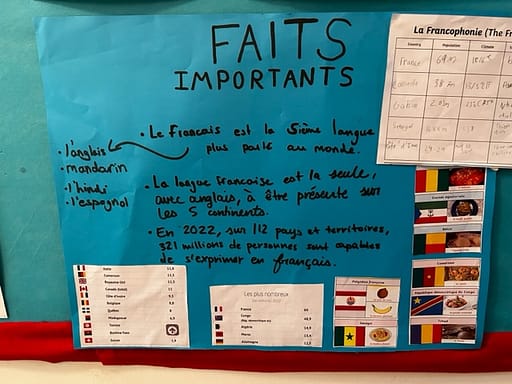
Cedar class joined up with Oaks and Elms for the last few classes of the term where they learned about different types of flour and how flour is milled. They tried grinding the grain using a traditional method (mortar & pestle) and then they used a grain mill and saw how much easier this method was. Three teams then made three types of ‘pain fait maison’ which the students got to eat on the last day of this term with their special lunch ‘fait maison’ too.
All three classes learned a new song celebrating spring: “La vie c’est comme un jardin” des Enfantastiques:
Geography
Cedar continued their study of Africa, presenting a country of their choice to the class. The class aimed to identlfy each country in the continent on a blank map, as well as to know the capital cities. Linking with the school Garden Project and the study of soil, the class looked at the issue of desertification around the world, its causes and what is being done to combat the problem. As a starting point, the class learnt about the devastation of the American Dustbowl in the 1930s and its causes, natural and man-made.
History
During this term the Cedar class began to look at the rise of dictatorships in Europe, focusing on Nazi Germany. The students looked at the Weimar Republic and at the ways in which Adolf Hitler managed to rise to the power in 1933. While focusing on this topic, the Cedar class continued to practice GCSE-style questions, working on paragraph structure and analytical writing.
While looking at the rise of Nazi regime in Germany, the Cedar class began to work on a project focusing on the experience of Jewish communities in France before and during World War Two. Within this project, the Cedar class had the opportunity of visiting the Jewish Museum of Paris, the neighbourhood of the Marais and the Shoah Memorial.
Art
During this term the Cedar class practiced drawing and painting to create the backdrops for their drama performance drawn on Agatha Christie’s “The Mousetrap”. By looking at the different ways in which the play was brought on stage in the past, the Cedar students designed different backdrops aiming to recreate the sitting room of a 1950s manor house in the London area.
Creative Writing Workshop and ICT
This term the Cedar class worked on an integrated project that brought together creative writing workshops and ICT lessons. The Cedar students worked on the description of a setting, using pictures of natural landscapes as stimuli. By drawing on the chosen natural setting, the Cedar students developed a GCSE-style piece of narrative writing, developing a 500-700 words story that would include narrative conventions and would build a balanced plot.
During ICT lessons, each student transferred their own story into a storyboard, by using the programming language “Scratch”. While doing that, the Cedar students were able to recreate digitally the actions and the descriptions embedded in the story, working on the sounds, the images and the graphics needed to develop an animated storyboard.
Global Perspectives
During this term the Cedar class continued to work on the project “Europe in Schools” through which they will be able to put together a short documentary on migrations and to share it with a partner school in the Netherlands. The Cedar students looked at social research methods, learning how to create an interview questionnaire that could answer to their research question. As the class’s research is focusing on the experiences of foreigners settling in France, the students started to conduct interviews with staff members and parents to gather data about the topic under study.
The Cedar class – along with the Elm students – participated also in a webinar conducted by Adeline Barras, the project manager of the Belgian association “Hearth”. As this association aims to find solutions to local food waste, the students had the possibility of looking at the ways in which people in the food industry try to prevent food waste on a regular basis.
Science
Cedar class this term worked out about different concepts in physics , they learned about speed and the quantitative relationship between average speed, distance and time (speed = distance ÷ time), the representation of a journey on a distance-time graph and relative motion: trains and cars passing one another.
They learned about static electricity where they experienced the positive and negative charges when objects are rubbed together:transfer of electrons, forces between charged objects. As well as the idea of electric field, forces acting across the space between objects not in contact
Mathematics
During this term, Cedar Class practiced solving linear equations and then used gained knowledge while solving geometric problems where sides and angles were expressed algebraicly. Cedar students also dived into the quadratic equations and practiced using the quadratic formula while solving them. Linked to our Green Garden Project and D&T workshops we created and solved ratio, percentage increase and decrease, volume, area and perimeter gardening and farming problems
D and T
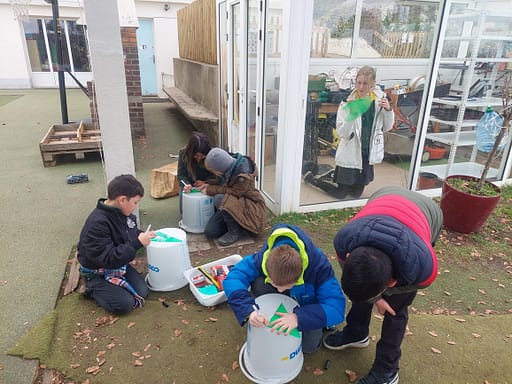
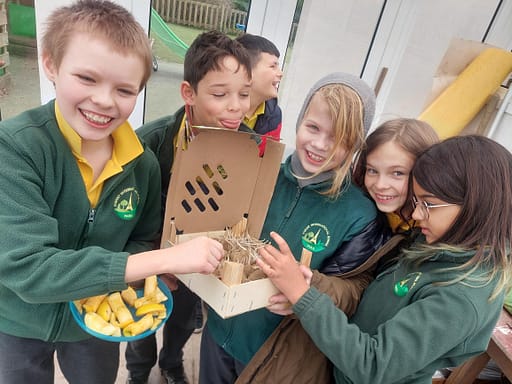
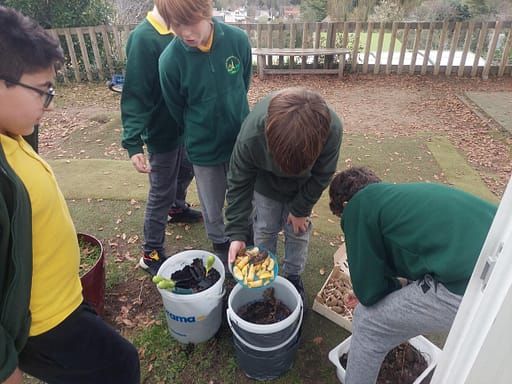
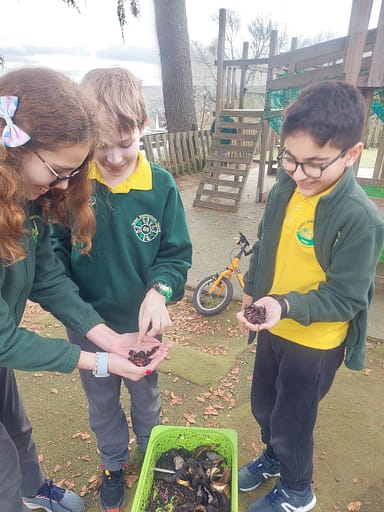
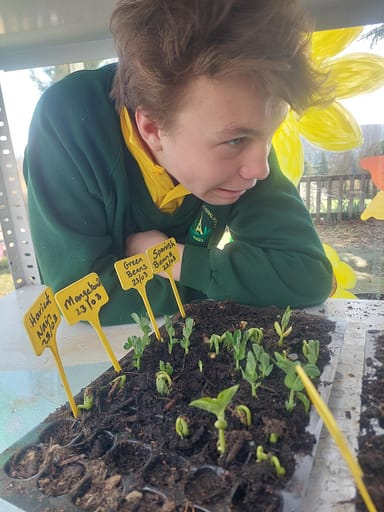
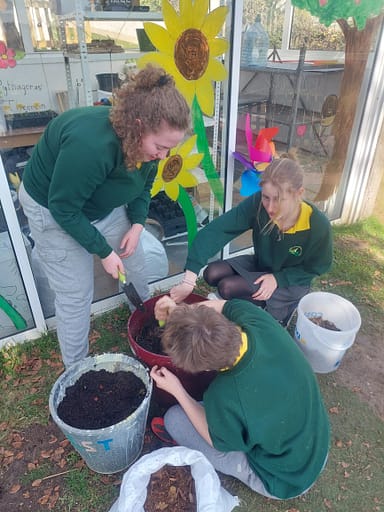
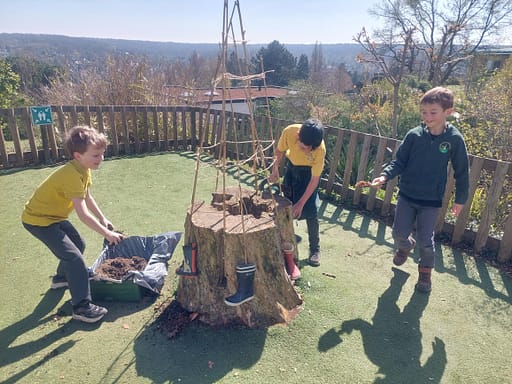
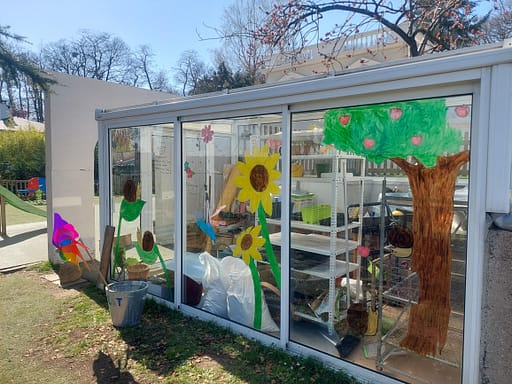
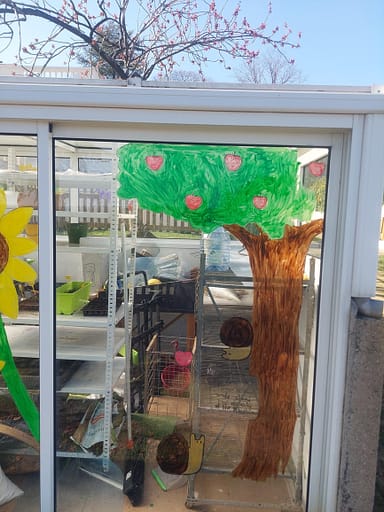
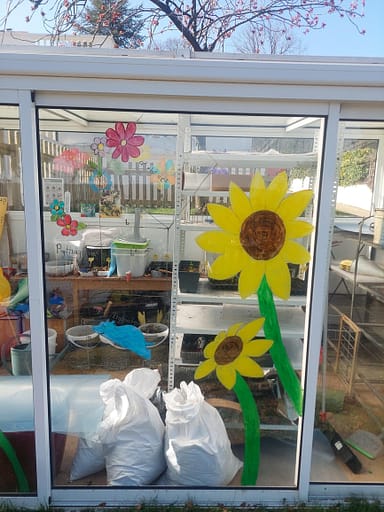
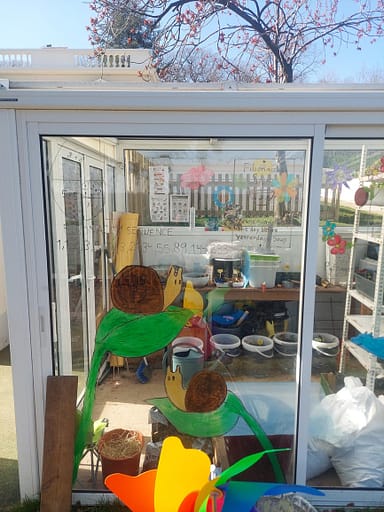
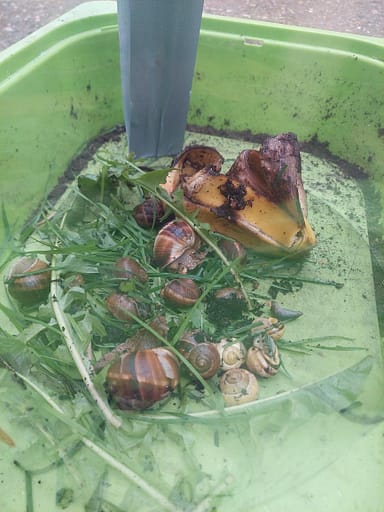
Planted runner beans,
In an old and cracked rainboots.
We are sure they will have some strong,
healthy roots.
Collected some stinging nettles,
And conjured our own plant food fertilizer.
No need to go to the Jardiland, parents.
We have a solution that is wiser.
Explorer Pythagoras,
Fibonacci and Newton,
Still plenty to go through,
Will start with Darwin’s evolution.
Found Mathematics present all around us in nature.
On the house of the snail or the beautiful sunflower.
Better start designing that
rain water collecting tower.
Compost box, windchime,
wormery and the birdfeeder.
Observed how seeds are growing
and my fingers get greener.
Trellis for the runner beans
and horse manure for potato.
Just wonder of Mona Lisa
knew about that Golden Ratio.
Green and brown for our compost box,
Apparently it is all about the balance of Nitrogen and Carbon,
Something important
like a pair of socks.
Types of soils
and different climates,
Greenhouse effect.
Ohhh no, I have cut my finger, not a big deal,
But I better wash it well and disinfect.
We are off on our holiday,
But plants shall continue to grow.
Automated watering system,
Will look after them,
And it should be quite easy,
Cos we planted those plants in a row.
Drama Workshop
During this term the Cedar class concluded their work on a scene drawn on Agatha Christie’s “The Mousetrap”. After having edited the script, tailoring it to the characteristics of the audience and of the actors’ crew, the Cedar students worked on their own characters, studying them, and rehearsing their performances. At the end of the term, the Cedar students performed their scene in front of middle school students, adding backdrops, props, and costumes to their performance.

